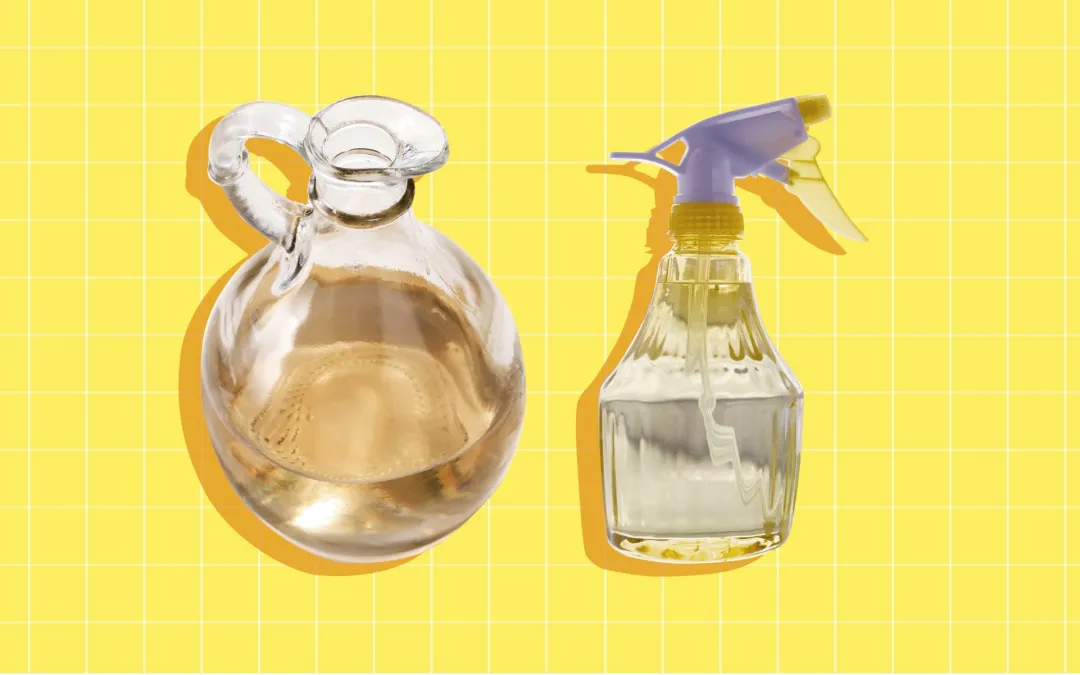
Know what’s happening
Access the private noticeboard for verified neighbours near you. Keep informed about any suspicious activity, send urgent updates to your neighbours when required and discuss emergency planning.
Get to know your neighbours
Browse the directory and start getting to know your neighbours. Don’t want to post to the whole neighbourhood? Send a private message.
Buy, sell and give away
Want to declutter your garage? Buy some used household items? Give away some garden stuff? Become a verified neighbour to browse and post items for sale. Trading is simple when everyone lives nearby.



Thank you for using Neighbourly
You may receive an email confirmation for any offer you selected. The associated companies will contact you directly to activate your requests.
The Team from NZ Compare
Now, more than ever, a great broadband connection is vital to all Kiwis! Our lives have changed so much over the past few years with many of us now working from home.
Hyperfibre delivers insane speeds that most Kiwis can’t even imagine! Whether it’s for work, study, streaming or playing … View moreNow, more than ever, a great broadband connection is vital to all Kiwis! Our lives have changed so much over the past few years with many of us now working from home.
Hyperfibre delivers insane speeds that most Kiwis can’t even imagine! Whether it’s for work, study, streaming or playing your favourite video games, Hyperfibre is going to give you the smoothest experience possible.
Feel the need for speed? Hyperfibre has launched on Broadband Compare. Go check it out now and see if it's right for you!

Mia from Pukehangi - Mangakakahi
Negotiable
Mia from Pukehangi - Mangakakahi
See TradeMe Auction
www.trademe.co.nz...
Negotiable
Mia from Pukehangi - Mangakakahi
please see TradeMe ad www.trademe.co.nz...
Negotiable
More than 400 weather stations around the world exceeded their record temperatures last year!
As one of the hottest years to date, there is an urgency to adapt our homes to these extreme events! Using resilient building materials can mitigate the effect of these events!
Check out our … View moreMore than 400 weather stations around the world exceeded their record temperatures last year!
As one of the hottest years to date, there is an urgency to adapt our homes to these extreme events! Using resilient building materials can mitigate the effect of these events!
Check out our residential property report for insight into your property’s potential risks in the future!

60 replies (Members only)
Haven Falls are very blessed to be opening their new branch in Rotorua.
Located at 271 Old Taupo Road, Rotorua these facilities offer a large chapel, dining hall and extended off road parking.
We invite you at anytime to pop in and speak with one of our team members and have a look around … View moreHaven Falls are very blessed to be opening their new branch in Rotorua.
Located at 271 Old Taupo Road, Rotorua these facilities offer a large chapel, dining hall and extended off road parking.
We invite you at anytime to pop in and speak with one of our team members and have a look around the facilities offered.
We operate 24 hours 7 days a week.
0800 428366
Learn more

Ashleigh from Neighbourly.co.nz
A state of emergency has been declared for locations on the East Coast. Check out this morning's breaking news from Stuff.co.nz.
- Severe flooding hits the Tolaga Bay and Tokomaru Bay areas of Tairāwhiti.
- Two contractors are trapped near Anaura Bay, and a rescue operation is underway.
… View moreA state of emergency has been declared for locations on the East Coast. Check out this morning's breaking news from Stuff.co.nz.
- Severe flooding hits the Tolaga Bay and Tokomaru Bay areas of Tairāwhiti.
- Two contractors are trapped near Anaura Bay, and a rescue operation is underway.
- Tairāwhiti Civil Defence has ordered the evacuation of residents in the Mangatuna area north of Gisborne.
- The Hikuwai River reached 12.8 metres after 3am, a level higher than in flooding in 2020.
- State Highway 35 from Gisborne to Ōpōtiki, is closed because of flooding, slips and washouts.
- Power is out for around 755 customers in the Tokomaru Bay area.
- There are multiple slips in Tolaga Bay Gorge, with flooding across the road making it suitable only for four-wheel drives.
- Gisborne Civil Defence manager Ben Green told RNZ the rainfall overnight was almost "biblical".
- At least seven households have been evacuated.
- Rainfall is still heavy and there is more to come across the region, potentially another 150mm today.
- Parts of Bay of Plenty could also expect more than 200mm of rain to fall today.
For further information on the evolving situation, click here.

Whether the actual crunching of numbers sounds exciting or scary, celebrating World Maths Day can be oodles and oodles of fun! Maths is believed by many people to be one of the hardest subjects to achieve in because of its strictness in needing correct answers, its abstract concepts, and the … View moreWhether the actual crunching of numbers sounds exciting or scary, celebrating World Maths Day can be oodles and oodles of fun! Maths is believed by many people to be one of the hardest subjects to achieve in because of its strictness in needing correct answers, its abstract concepts, and the overall stress involved in succeeding. But don’t let that be intimidating!
World Maths Day is a chance to test your skills, practice maths, and get involved in a worldwide event that celebrates the history of maths to improve the lives of students, parents, and teachers everywhere.

The Team from NZ Compare
NZ Compare proudly employ a workforce of incredibly talented and devoted individuals, who make up our website and technology development team. These individuals are based through out the Ukraine.
Like the rest of the world, we have been closely monitoring the terrible events unfolding in … View moreNZ Compare proudly employ a workforce of incredibly talented and devoted individuals, who make up our website and technology development team. These individuals are based through out the Ukraine.
Like the rest of the world, we have been closely monitoring the terrible events unfolding in Ukraine and are in daily meetings with our staff to confirm their safety and well-being.
Our wonderful developers are facing a climate of unpredictability, we felt it was our responsibility to ensure you, our wonderful Neighbours were both aware and understanding that this environment may cause delays to the many projects we have in the works for 2022.
To show support of our brilliant team, we have temporarily changed our logo on our NZ Compare website. WHICH has also been recently refreshed and looking better than ever thanks to this very team! Go check it out!

Mei Leng Wong Reporter from NZ Gardener & Get Growing
Dear neighbours,
Every month, NZ Gardener runs a series of tested reader recipes using a seasonal crop. We are now on the hunt for walnut recipes, so send your best ones to mailbox@nzgardener.co.nz before March 28, 2022.
Every published recipe wins a copy of our special edition Homegrown Recipes.

Robert Anderson from Curtain Clean Rotorua
More reasons why you should always have a bottle of vinegar on hand.
There are so many different vinegar uses that it is truly one of the most versatile items in your pantry. From cooking to cleaning to personal care, there are endless home uses for vinegar. In fact, there are very few things … View moreMore reasons why you should always have a bottle of vinegar on hand.
There are so many different vinegar uses that it is truly one of the most versatile items in your pantry. From cooking to cleaning to personal care, there are endless home uses for vinegar. In fact, there are very few things you can’t clean with vinegar.
It’s important to note that there are many different types of vinegar and each has its own purpose. Balsamic and red wine vinegar are used mostly for cooking and salad dressing. White vinegar, while edible, is best used for cleaning purposes. Cleaning vinegar is dangerous to ingest and should only be used for that purpose. Apple cider vinegar is one of the most versatile types of vinegar, with just as many culinary uses as cleaning and other purposes.
Here are some genius vinegar uses you might not know about.
Vinegar as All-Purpose Cleaning Spray: Get rid of your chemical cleaning products and use vinegar instead. Mix one-part white vinegar and one part water in an empty spray bottle to clean everything from wood floors to countertops. To make the smell more pleasant, add 10-20 drops of any essential oil. Lemon is a particularly good choice because it helps to cut grease and odours.
Vinegar as Soap Scum Remover: Having trouble scrubbing that tough soap scum off your bathtub or shower doors? Pour some white vinegar or cleaning vinegar on a sponge and wipe. If you still have trouble removing the grime, put a little baking soda on a sponge and add a little more vinegar. It will fizz, making the dirt come up easily.
Vinegar as Clarifying Hair Treatment: If product build-up is making your hair feel oily, skip the clarifying shampoo and DIY your own using, you guessed it, vinegar. Combine one part apple cider vinegar to two parts water in an old shampoo or empty water bottle and shake it up. After shampooing your hair, towel dry and apply the solution evenly from roots to ends. Let it sit for a few minutes before rinsing and conditioning.
Vinegar as Candle Wax Remover: Spilled candle wax is easy to remove with the help of vinegar. Just heat up the wax with a hair dryer and then sop it up with a paper towel. Remove any leftover wax with a paper towel soaked in a solution of half water and half vinegar.
Vinegar as Weed Killer: Stop using chemical weed killers in your garden. Vinegar is better for your family and pets. It’s best to use vinegar that has high acidity, such as Pure 20% Vinegar ($23; amazon.com), to apply to weeded areas. You can also combine a gallon of white vinegar with a cup of salt and a tablespoon of dish soap. Mix well and apply to the area.
Vinegar as Flea Spray for Your Pet: Want to treat Fido or Fluffy’s fleas naturally? After shampooing, apply a mixture using one part water to one part apple cider vinegar on your pet’s coat to create an unpleasant environment for fleas to live.
Vinegar as Carpet Stain Remover: Vinegar can help lift odours and get stains out of carpet. Soak the stain with white vinegar, and then sprinkle on some baking soda until the solution fizzes. Wait a few minutes for the stain to absorb and then vacuum up the powder. If the odour is bothersome, apply a drop or two of essential oil over the vinegar.
Vinegar as Stainless Steel Cleaner: No need to buy anything special to make your fridge shine. Spray undiluted white vinegar on stainless steel or chrome, then buff off with a polishing cloth.
Vinegar as Showerhead Cleaner: If your shower spray isn’t what it used to be, it could be clogged with minerals and gunk. Fill a plastic bag with vinegar and secure it over the showerhead using tape or rubber bands. Wait at least two hours and then run the water for a few minutes through the showerhead before using. You can also remove the showerhead and submerge it in the vinegar instead. Rinse off before reattaching.
Vinegar as Sweater Fluffer: Fluff up wool sweaters by adding a few capfuls of vinegar to the rinse cycle.
Vinegar as Garbage Disposal Deodorizer: To deodorize a garbage disposal, make vinegar ice cubes and feed them down the disposal. After grinding, run cold water through the drain.
More: www.curtainclean.co.nz...

In 1999, World Poetry Day was introduced, with the aim of promoting the reading, writing, publishing, and teaching of poetry around the world.
It is an opportunity to appreciate the power of poetry and how it can capture the creative spirit of the human mind.

 Loading…
Loading…
Are you sure? Deleting this message permanently removes it from the Neighbourly website.
 Loading…
Loading…
© Neighbourly 2026
